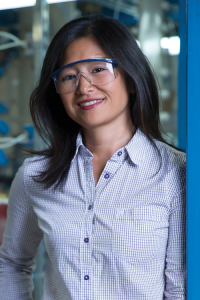This content was provided by Carbon Talks
What are the challenges, opportunities, and research pathways for carbon capture and conversion?
Even with the ambitious adoption of new and ambitious climate and clean energy policies and technology, many say that we will still lose the race to limit global warming to 2°C by the end of the century. Leading climate thinkers like Tim Flannery assert that, if the world is to avoid exacerbating climate change, new “climate negative” technologies will need to be developed and adopted in order to draw CO2 from the air and either re-use or store it.
Canada and BC are home to an emerging research field in carbon capture and conversion, such as Carbon Engineering’s new air capture technology currently being piloted at the company’s Squamish plant.
But what exactly is carbon capture and conversion—what does it offer us? What are the scientific and commercial challenges? What is current research telling us and which projects have potential?
Join us for a free public dialogue with CMC Research Institutes (formerly Carbon Management Canada). We’ll discuss those questions and learn about the new Carbon Capture & Conversion Institute, which is situated right here in Vancouver.
When: Wednesday, January 27 from 12:30 – 1:30 PM
Where: SFU Harbour Centre, 515 West Hastings Street, Room 7000
Webcast: Can’t make the dialogue? This event will be webcast live, courtesy of our partnership with the Pacific Institute for Climate Solutions. Sign up for a webcast reminder on the event registration page.
Join the conversation on Twitter at #CarbonTalks and Tweet your questions to @CarbonTalks
Panelists:
|
Richard Adamson, M.Sc., P.Eng., For three decades Richard Adamson has facilitated the commercialization of innovative technologies. As the first President of CMC Research Institutes, Adamson has been driving solutions to industrial greenhouse gas emissions through the global research network. He has overseen the successful transition of CMC from a research network focused on early-stage discoveries to an independent not-for-profit helping technology developers and end-users identify and move technologies into industry-ready solutions. Mr. Adamson also assembled the national team that is projecting ways to move Canada to a prosperous low-carbon future as part of the international Deep Decarbonization Pathways Project. Prior to joining CMC, Mr. Adamson worked with the Southern Research Institute’s environment and energy team, resulting in the Carbon to Liquids Development Center in Durham, N.C. hosting pilot-scale waste- and biomass-to-liquid (hydrocarbons) technologies. He has founded or worked with small and multinational technology companies ranging from lab, environmental remote sensing, and industrial process control instruments through to starting up a micro-turbine combined heat and power distributed micro-utility. |
|
Naoko Ellis, Ph.D., M.E.Sc., B.Sc. |
What is a Carbon Talk? We hold free public dialogues several times per year. Each talk looks at a different piece of the low-carbon puzzle and consists of a presentation and question and answer segment. If you would like to be notified and invited to upcoming talks, please subscribe to our newsletter. Did you miss a Carbon Talk? Check out our YouTube Channel for previous dialogues.

